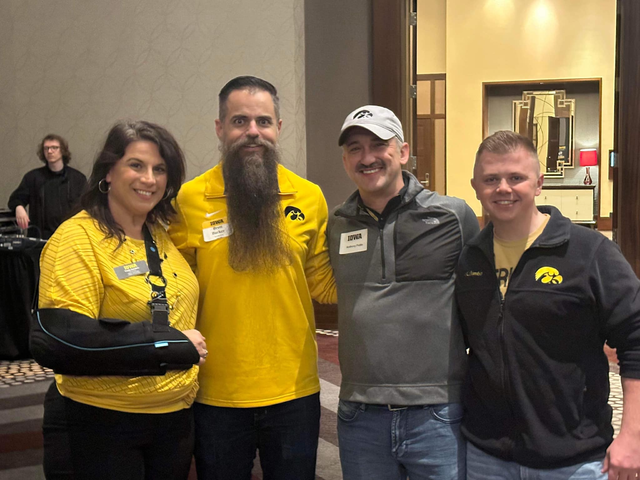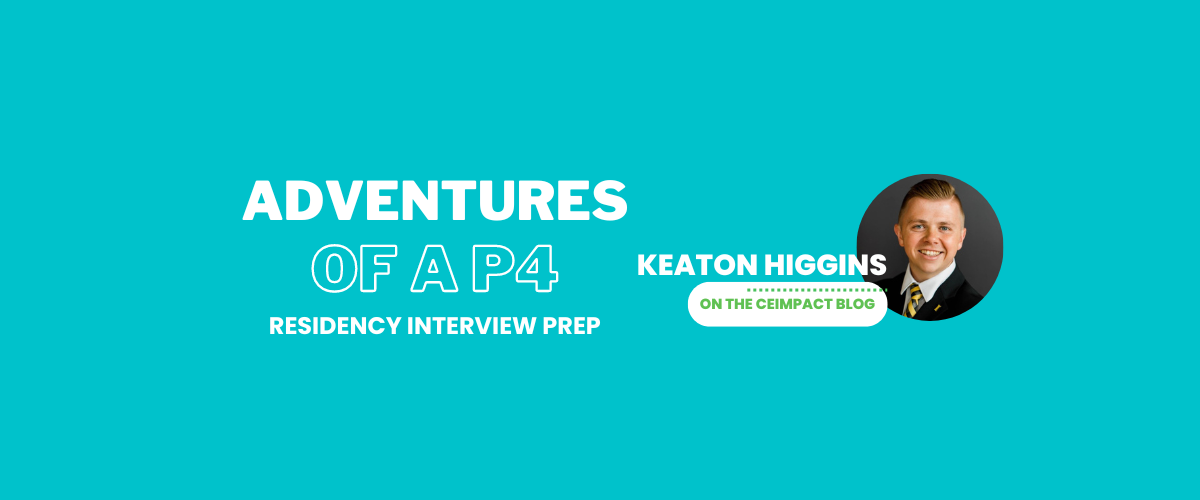The end of 2022 gave me a two-week break from rotations that included a trip back home for Christmas, a ski trip and an impromptu vacation down to Nashville to watch the Iowa Hawkeyes play in the Music City Bowl to ring in the new year. I feel refreshed and ready for my last three APPE rotations!
To start 2023, I have returned to the Iowa City VA Healthcare System to complete my Acute Care rotation with Internal Medicine. While I am excited to be back at the VA and am looking forward to a great learning experience, I am admittedly a little nervous and rusty as I haven’t been in a hospital since my last experience at the VA last June. But that’s the great thing about rotations – it’s a chance to learn and grow as future pharmacists throughout the year AND help students identify careers that they want to pursue following graduation.
Of course, to pursue this first step in our careers, we must apply for them in the first place – something I have discussed previously. But arguably, the most critical part of the application process that many students, including myself, find ourselves preparing for is… interviewing.

With a seemingly unlimited amount of post-graduate opportunities for pharmacists, there is an unlimited number of approaches programs and companies are taking for their interview processes. Navigating interviews this year may quickly become overwhelming for students as we try to juggle lengthy virtual interviews, in-person interviews that require self-funded travel expenses, and our normal rotational requirements and responsibilities.
When thinking about your interviews, it is imperative to understand every detail. If held virtually, ensure a reliable internet connection in a private and quiet area to avoid all potential distractions or disruptions. Make sure the virtual background is professional and clear of personal clutter. Ensure quality lighting and the dress code is clearly understood and strictly followed. If an in-person interview is required, ensure that everything needed for travel and lodging is identified as soon as possible to avoid delays or issues. Ensure proper time off from rotations or work is communicated to avoid unmet requirements or missed shifts. Finally, ensure the agenda for the trip and interview is understood – many programs provide dinner the night before for the interviewee(s), and the interview day can be several hours. Being mentally and physically prepared is vital to surviving these long days.
Luckily for my classmates and several other students around the country, we are given a three-week break from rotations in February to allow time to schedule these interviews, study for the NAPLEX or do anything else before graduation. However, this doesn’t always work out perfectly, and interviews may have to be scheduled in January around APPE schedules. I have multiple interviews scheduled this month, and I know many others do, based on their areas of interest for next year. For students aiming to obtain a traditional clinical residency next year, the pressure is now on to schedule interviews and impress programs before submitting their preferences before March 3rd and waiting for Match Day on March 15th.
This is a hectic and nerve-racking time for pharmacy students nationwide, no matter their plans for next year. The pressures of interviewing well (potentially several times) only add to this stress. It’s vitally important to be able to handle yourself in an interview, as many programs are looking to get to know the real-life individual applying to their site after having to rely on shuffling through hundreds of CVs and applications to narrow their search process down. Your application might have gotten this far into the process, but nailing the interview is vital to match your dream program.
Thankfully, we live in a time when preparing for an interview has never been easier. Several websites provide hundreds of potential interview questions, and it’s always good to spend some time preparing to be asked similar questions. However, I would advise against memorizing scripted answers and instead focus on general thoughts and experiences to mold your responses as needed. This will not only prevent you from acting and sounding like a robot, but it will also show that you can adapt in the moment. Again, programs are, at least in part, using these interviews to get to know your personality, communication style and ability to interact within a team.
Another big part of an interview is being able to pull from your rotational experiences and effectively tell a story of the impact you have made as a student interacting with patients and other healthcare professionals. This all starts before the interviews and requires acting intentionally while on rotations to develop unique skills and gain essential experiences that programs may be looking for in a quality candidate. Being able to speak to different interventions or interactions you had with a patient is crucial to proving to a program that you have the skills and experience required to succeed at their site.
Finally, being willing and able to speak to any experiences on your CV is another critical piece of a successful interview. This also starts by being intentional with your time in pharmacy school and avoiding doing things – joining clubs, taking on leadership positions, working multiple jobs, etc. – to put them on a CV. When the time comes for someone to ask you about those experiences listed, confidently speaking about the passion you brought to those instances and the skills and lessons you learned because of them will serve you much more than the alternative. People care about you care about, and if you don’t understand that for yourself, you can never expect someone else to either.
The key to successful interview preparation is understanding who you are, what you have done, and why you did them. Once this is understood, it should be easy to reflect on the experiences you have had, the impact you have been able to have, and the skills you gained along the way. Combined with proper interview etiquette, these skills should make it easy to stand out in an interview.
I know that I will implement these same ideas into my interviews over the next few weeks, and I can’t wait to see what the future has in store for all pharmacy students as the following chapter of life rapidly approaches.
{{cta(‘1999f129-41c8-4ca7-84ce-12ef94bb5846′,’justifycenter’)}}


